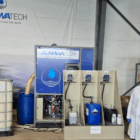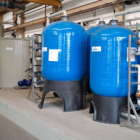Waste water treatment
Wastewater treatment is a multi-stage process that aims to remove pollutants and contaminants from wastewater in order to treat the water so that it can be discharged into the environment or reused. This process is crucial in both the municipal and industrial sectors in order to comply with legal requirements.







